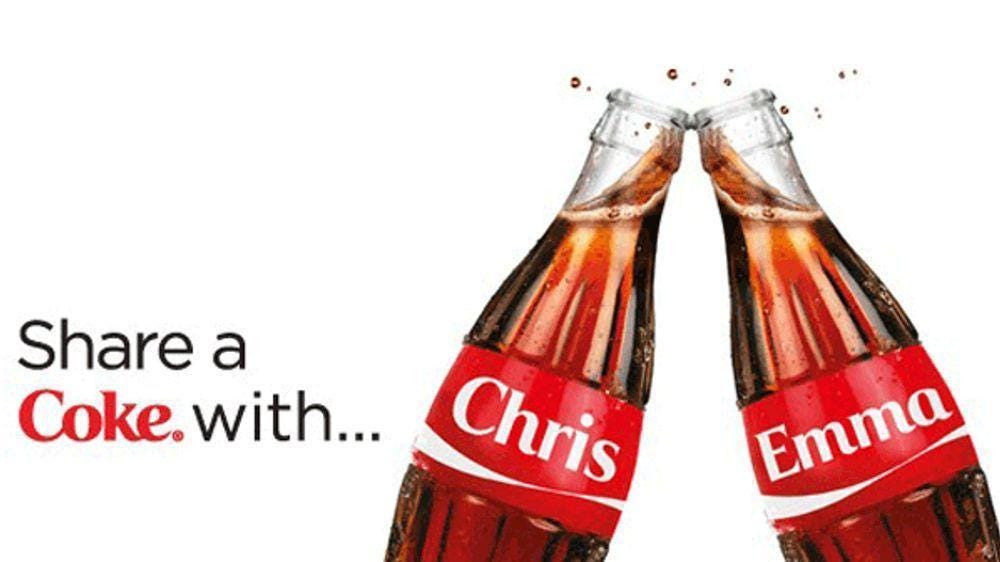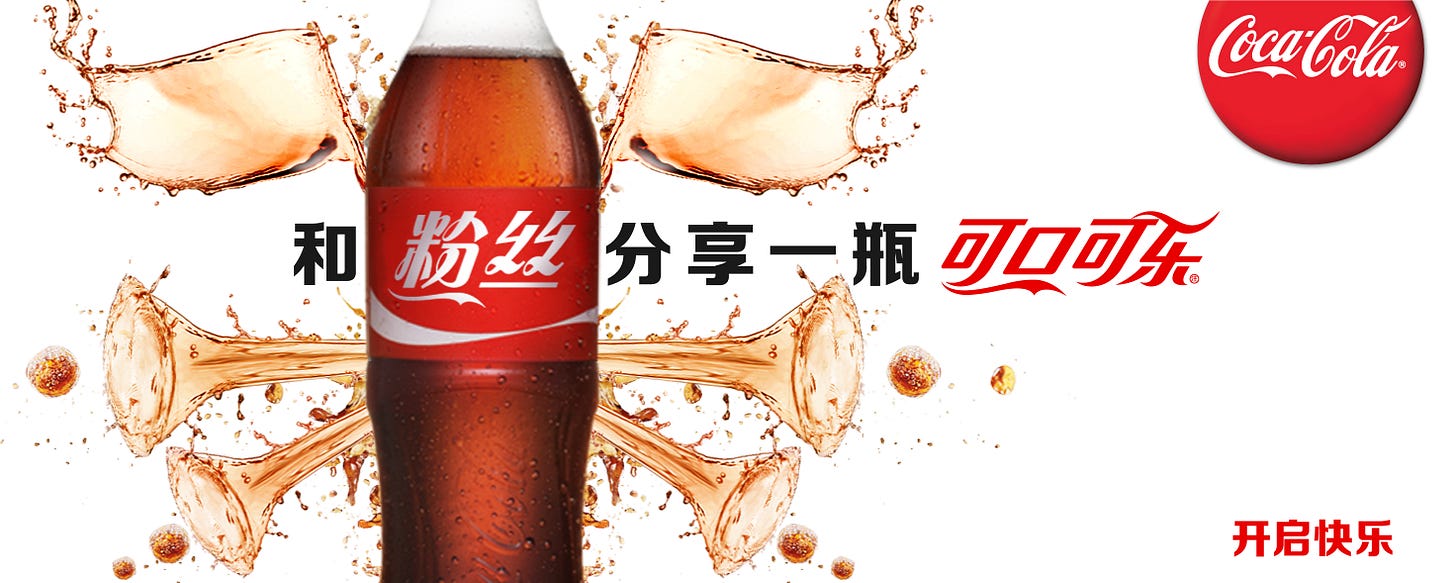How Coca-Cola Cracked the Code in China
From names to nicknames: A masterclass in cultural localization and emotional branding through the “Share a Coke” campaign
The "Share a Coke" campaign in China is a textbook example of culturally smart localization—and a brilliant fusion of global brand strategy with local linguistic and social insights.
The original version of the campaign, which featured personal names on Coke bottles in Western markets, was a groundbreaking marketing initiative by Coca-Cola known as the "Share a Coke" campaign. Launched first in Australia in 2011, the campaign replaced the brand’s iconic logo with popular first names on bottles and cans, inviting consumers to find and share a Coke with friends, family, or even strangers. This personalization strategy created a strong emotional connection with customers, encouraged social sharing, and significantly boosted sales. Its success in Western markets led to global adaptations, each tailored to local naming conventions and cultural nuances.
🥤 How Coca-Cola adapted the campaign in China:
Unlike the original version of the campaign (which featured personal names on Coke bottles in Western markets), Coca-Cola knew that approach wouldn’t translate well in China, where:
People often share similar or common surnames
There’s less emphasis on individual names in public marketing
Using someone’s full name can feel overly intimate or even awkward
So, instead of using names, Coca-Cola printed popular nicknames, relationship terms, and playful expressions on bottles, like:
“Bestie” (闺蜜)
“Classmate” (同学)
“Boss” (老板)
“The guy who always treats us” (请客哥)
These labels tapped into social roles, group dynamics, and the Chinese love for relational humor—all while encouraging people to think of others and share a Coke with someone specific.
Share a Code Campaign in China
🎯 Why it was so successful:
Cultural Relevance:
They localized the emotion, not just the language. By replacing names with relational terms, the campaign felt native and resonated with how people actually refer to each other in daily life.Shareability & Social Play:
People started collecting bottles with labels that matched their friends’ roles, sharing them on WeChat and Weibo, and even using them in real life to surprise coworkers or classmates.Emotional Engagement:
It wasn’t about your name—it was about your relationship with someone. That emotional angle turned it into a social and viral experience.Mass Personalization at Scale:
Even without printing actual names, it felt personalized. And it was scalable across China's massive population.
🧠 The Big Takeaway:
Localization is more than translation. Coca-Cola succeeded in China because it reimagined the campaign through a cultural lens, adapting the concept to reflect local values around community, identity, and humor.




